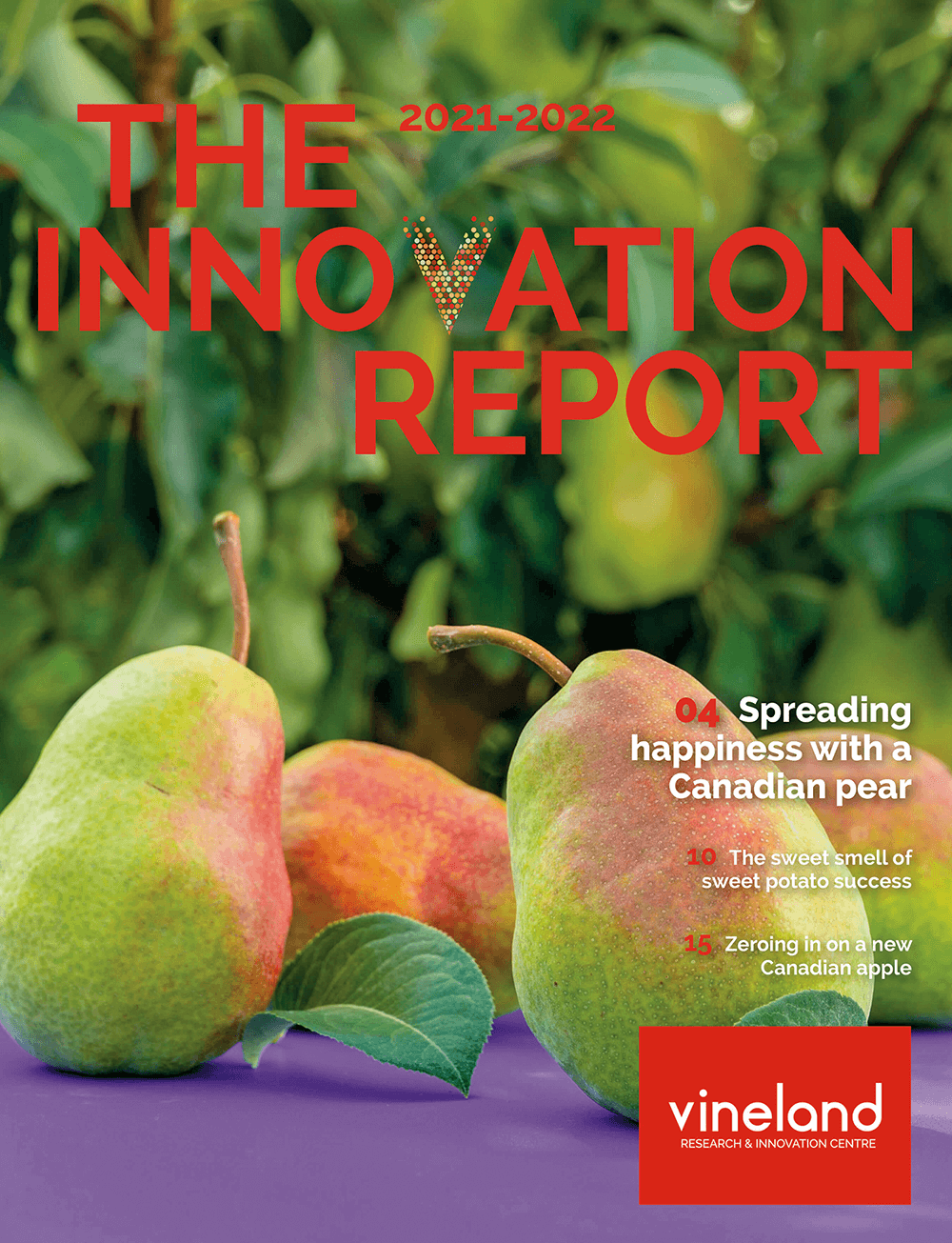January 12, 2022
Vineland releases 2021-2022 Innovation Report
Vineland Research and Innovation Centre (Vineland) released The 2021-2022 Innovation Report, containing updates on various research projects and highlighting efforts to build a national network for innovation in the agricultural, horticulture and greenhouse growing industries.
Vineland researcher, Rose Buitenhuis, program leader, biological crop protection, is heading up a project looking for new tools to fight common greenhouse plant pests. The project is is currently testing three nabid predator species, collected in the Niagara region, to determine which one has the greatest potential to control pests in Canadian crops. Nabids are common natural enemies of greenhouse crop pests like aphids, spider mites, thrips and whiteflies.
The report states that, “Depending on the pest, growers can experience crop losses of five to 20 per cent; if the pest transmits a plant virus, losses can go as high as 100 per cent.”
Among its most recent efforts, Vineland has undertaken a focused effort to expand its reach across Canada to support the growth of the national agriculture innovation sector by establishing a cross-country network for horticulture. During the last several months, Vineland solidified a partnership with Bioenterprise — a driving force behind Canada’s Food & Agri-Tech engine that paves the way for new and bigger opportunities in horticulture-focused innovation.
Another partnership with Niagara College and the University of Guelph is helping to develop the Greenhouse Technology Network — a collaboration to attract new business opportunities to the agriculture sector.
Vineland researcher, Rose Buitenhuis, program leader, biological crop protection, is heading up a project looking for new tools to fight common greenhouse plant pests. The project is is currently testing three nabid predator species, collected in the Niagara region, to determine which one has the greatest potential to control pests in Canadian crops. Nabids are common natural enemies of greenhouse crop pests like aphids, spider mites, thrips and whiteflies.
The report states that, “Depending on the pest, growers can experience crop losses of five to 20 per cent; if the pest transmits a plant virus, losses can go as high as 100 per cent.”
Among its most recent efforts, Vineland has undertaken a focused effort to expand its reach across Canada to support the growth of the national agriculture innovation sector by establishing a cross-country network for horticulture. During the last several months, Vineland solidified a partnership with Bioenterprise — a driving force behind Canada’s Food & Agri-Tech engine that paves the way for new and bigger opportunities in horticulture-focused innovation.
Another partnership with Niagara College and the University of Guelph is helping to develop the Greenhouse Technology Network — a collaboration to attract new business opportunities to the agriculture sector.
The report also outlines the Greening the Landscape Research Consortium. Led by Darby McGrath, program leader, plant responses and the environment, this initiative will set research priorities, reflecting industry needs and access training and skills development, innovative data, network connections and emerging knowledge. They will also take part in an urban forestry pilot project.
Consortium partners make up a range of stakeholders from across the industry, such as municipalities, governments, conservation authorities, non-governmental organizations, professional associations, suppliers, nurseries, landscape professionals, developers and consultants. Consortium members will have access to case study findings and resources as part of Vineland’s goal to build an information network and a collective capacity for solving common industry challenges.
The full report is available in both English and French via Vineland’s website at vinelandresearch.com.
READ REPORT
